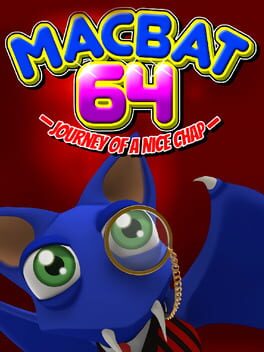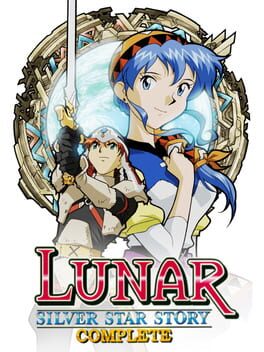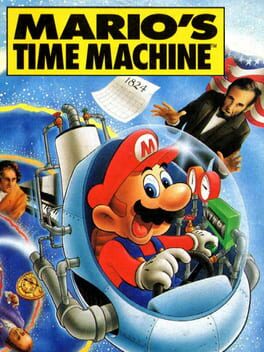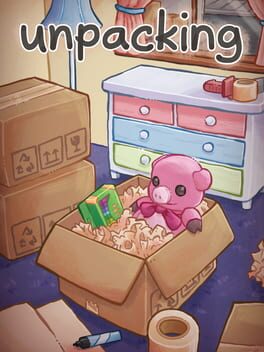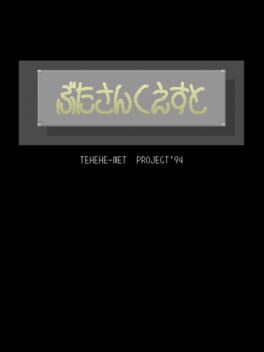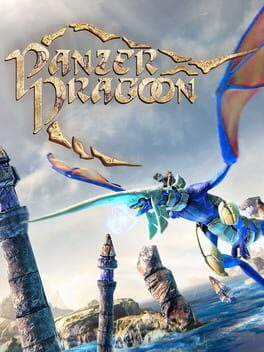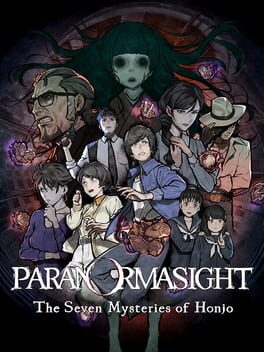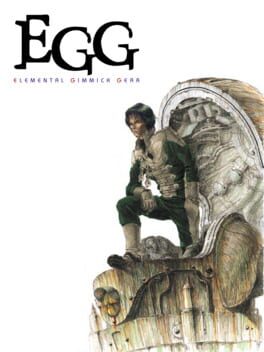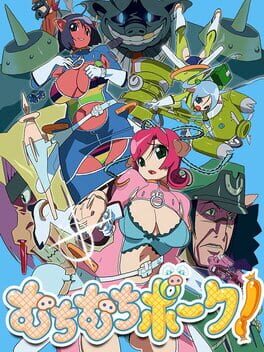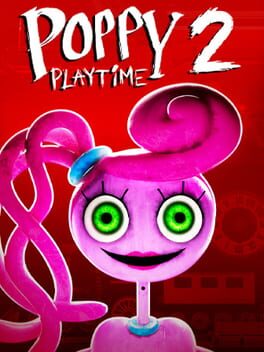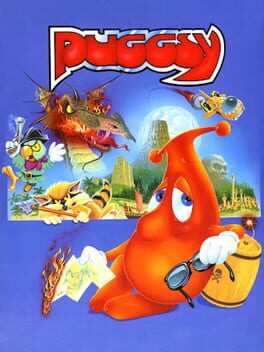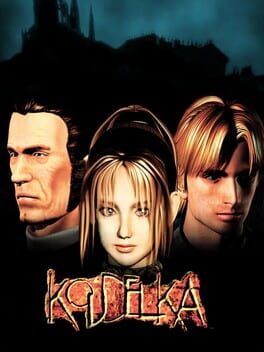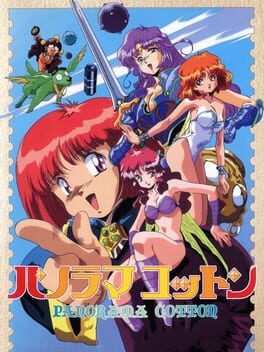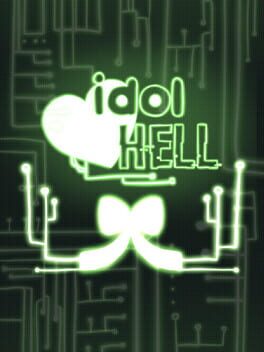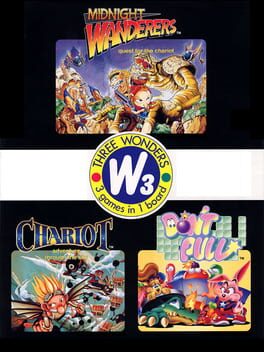Funbil
A quiet, unassuming first act gingerly constructs an expertly-arranged cavalcade of narrative dominos which cascades forward with an unrelenting momentum all the way to the end of the game. This remake was released in 1996, but not much had to be done besides prettying it up (which has been done exquisitely); the original 1992 release was astonishingly forward-thinking, containing the exact gameplay and storytelling DNA that would serve as the foundation for games like Chrono Trigger and Breath of Fire III to achieve their masterpiece statuses. If it wasn’t for a handful of truly horrendous dungeons and an admittedly monotonous battle system (which again, would later find its full potential in Chrono Trigger), this would easily be considered a similarly towering monument in the genre. Instead, Lunar is humbly content staying in the background and allowing its impact on the history of RPGs to manifest in spirit rather than in name. It’s just a few too many flaws short of a true masterpiece, but undeniably an all-timer. For fans of RPGs, this is your favorite game’s favorite game – or rather, a lavishly loving recreation of your favorite game’s favorite game.
1993
2021
The bandwagon of games being made with the express purpose of calling themselves “wholesome” is torpedoing forward at mind-melting speeds and only continues to gain traction. By now, whatever authentic sentiment that used to drive this movement has since been appropriated into a manufactured “aesthetic” to serve anyone who wants a GIF of their game to blow up on Twitter. What this means for me is that I nearly passed up on an immaculate game because of my growing cynicism and jadedness. Make no mistake about it; Unpacking truly is the superbly unique game everyone is making it out to be.
Anyone else can tell you about the inspired marriage of puzzle game and narrative – an unprecedented twist on “environmental storytelling,” one of the humble video gamist’s favorite phrases to wield – but what struck me equally about Unpacking was its unconventional story structure. To leave things intentionally vague, it feels like the game ends about three separate times. This is because the game follows a clear narrative arc where things get worse, and then they get better. Normally stories end right there, when things get better. We’ve had our hero’s journey, let’s wrap it up; but Unpacking keeps going. The story pushes on to explore just how much better things can continue to become. “Better” isn’t something that just happens once, it’s a continued lifetime of joy and love that rolls onward and forward, and then onward and forward still. What would ordinarily be a footnote or epilogue in other stories is the crux of Unpacking’s heart: why not allow me to play through my own epilogue? If I go on to live “happily ever after,” why not allow me to actually live through that “happily ever after?” Why must stories always stop there? Critically, this “happily ever after” in Unpacking winds up being significantly longer than any of the tribulations that had to be overcome to reach it. Nothing bad lasts forever. There’s a light at the end of the tunnel, but the point is not to simply reach that light; it’s to bask in it, revel in it, sink into its comfort and its warmth and hold on to its embrace for as long as it can last.
Things get better, yes – but they can also keep getting better, too.
Anyone else can tell you about the inspired marriage of puzzle game and narrative – an unprecedented twist on “environmental storytelling,” one of the humble video gamist’s favorite phrases to wield – but what struck me equally about Unpacking was its unconventional story structure. To leave things intentionally vague, it feels like the game ends about three separate times. This is because the game follows a clear narrative arc where things get worse, and then they get better. Normally stories end right there, when things get better. We’ve had our hero’s journey, let’s wrap it up; but Unpacking keeps going. The story pushes on to explore just how much better things can continue to become. “Better” isn’t something that just happens once, it’s a continued lifetime of joy and love that rolls onward and forward, and then onward and forward still. What would ordinarily be a footnote or epilogue in other stories is the crux of Unpacking’s heart: why not allow me to play through my own epilogue? If I go on to live “happily ever after,” why not allow me to actually live through that “happily ever after?” Why must stories always stop there? Critically, this “happily ever after” in Unpacking winds up being significantly longer than any of the tribulations that had to be overcome to reach it. Nothing bad lasts forever. There’s a light at the end of the tunnel, but the point is not to simply reach that light; it’s to bask in it, revel in it, sink into its comfort and its warmth and hold on to its embrace for as long as it can last.
Things get better, yes – but they can also keep getting better, too.
1994
Wanted to make another post separate from my original review to share an English translation I've done of this game on YouTube, for anyone who can't read Japanese or simply doesn't want to bother emulating it:
https://youtu.be/X15BAa2dX6k
The game is simple enough that watching it as opposed to playing shouldn't be too drastically different of an experience. Please enjoy.
https://youtu.be/X15BAa2dX6k
The game is simple enough that watching it as opposed to playing shouldn't be too drastically different of an experience. Please enjoy.
The world has developed in such a way where I'm allowed to play Panzer Dragoon running 60 frames per second at 2560x1440 resolution with brilliantly redone models and textures and I couldn't ask for anything more. Well, besides being able to play the other Panzer Dragoon games like this too, of course. If you're not chill with this you're not chill with me and it really is just that simple
At the yolk of this game are some neat ideas, but unfortunately it’s quite a tough egg to crack. Elemental Gimmick Gear puts all its eggs in the basket of tried and true Zelda-adjacent formulas but doesn’t seem to understand what makes those mechanics work; enemies do too much damage, the players’ attacks are too small and too slow, the dungeons have no sense of continuity and the bosses have way too much health. Along the way are capsules to help upgrade stats like attack and defense, as well as unique elemental attacks that feign the opportunity of evolving combat options, but they don’t do enough to soften the boil. This entire game requires too much walking on eggshells to prevent swift and unfair game overs.
Elemental Gimmick Gear does hatch a more narrative angle than Zelda games tend to push, which similarly has moments of inspiration that shine through the cracks, though by the end it’s got egg on its face trying to juggle too much worldbuilding lore and loose themes that haven’t got a proper place to roost. The more the narrative incubates, the more it spoils, and it ultimately is not worth the strenuous effort of playing the game to see through to the end.
This game’s just a few too many eggs short of a dozen.
Elemental Gimmick Gear does hatch a more narrative angle than Zelda games tend to push, which similarly has moments of inspiration that shine through the cracks, though by the end it’s got egg on its face trying to juggle too much worldbuilding lore and loose themes that haven’t got a proper place to roost. The more the narrative incubates, the more it spoils, and it ultimately is not worth the strenuous effort of playing the game to see through to the end.
This game’s just a few too many eggs short of a dozen.
2007
1993
1999
This was an incredibly hard game for me to put down!! Looking around the internet it seems like people think the RPG gameplay weighed it down compared to more typical horror games, but I thought the battles were impressively well-balanced (I never died once, but most boss battles did have me close to the wire so every victory felt satisfactorily earned) and allocating characters’ stats proved to be meaningful and engaging, something which other games can flounder with. And for someone like me, who doesn’t do especially well with scary stuff (I usually get my friends to play scary games so I can watch…), Koudelka wound up being pretty perfectly tuned to my exact sensibilities of wanting that creeping, dreadful, oppressive atmosphere with some abstractly-gruesome imagery, while never being anything that discouraged me from playing by being “too much” (a balance I’ve only ever really found in Silent Hill games). What an incredible little thing!! A horror RPG that even wimps like me can have a wonderful time with - and doesn’t waste that time either, clocking in at only 13 hours in my sometimes meandering playthrough. Not even to mention some of the absolute best voice acting and choreography I’ve seen in any game, let alone one on the original Playstation. What a refreshing gem to have stumbled into by accident. Going in I knew nothing, but coming out I’m leaving with a new favorite.
1994
2023
Surprisingly unpolished considering the asking price. I love a good Touhou clone but this one is gutless and devoid of any imagination. Tedious jokes with stilted writing and a flimsy last-minute attempt at an appeal to pathos. Clearly made by fans of Touhou but seemingly not by anyone who entirely understands the joy of them; bog-standard bullet patterns fill the entire runtime and there is no room for player expression whatsoever. And for a game so intensely themed around music, the soundtrack has next to no personality at all... Deeply disappointing.
1991
Incredible package of two awesome little games. They both wear their inspirations on their sleeves (I promise the design documents were two pages each; one with screenshots of Ghouls n Ghost and Gunstar Heroes, the other with Gradius and R-Type) but still manage to find its own voice with unique things to say. One might look at that list of inspirations and be put off; these are all games that pose pretty significant challenge, as well as being games that are bastardized constantly. A welcome surprise was to see that, despite these being arcade games and despite where its ideas all originated, the two games are pretty breezy! The versatile player control options and upgrades make the surreal romps through fantastical locations brisk and engaging, allowing nothing to get in the way of appreciating of just how delicately and considerately the levels were designed. And like I said, just because these games draw obvious inspirations does not mean they're retreads of tired ideas. Every moment of every level and every boss had me impressed and delighted at how fresh their ideas are and how acutely they're executed. These two games have more than earned a spot standing shoulder-to-shoulder with the giants they hearken back to.
Wonderful two games. Not sure why they called it Three Wonders, though. There's only two wonders. I did notice some, uh, weird thing in this game tacked on like gum stuck to the bottom of a shoe. Not really sure what it was. Certainly wasn't wonderful, I'll tell you that. Two Wonders.
Wonderful two games. Not sure why they called it Three Wonders, though. There's only two wonders. I did notice some, uh, weird thing in this game tacked on like gum stuck to the bottom of a shoe. Not really sure what it was. Certainly wasn't wonderful, I'll tell you that. Two Wonders.
